November 2017 National eResearch Newsletter
Welcome to the November AeRO eResearch Newsletter
From the AeRO CEO
The eResearch Australasia Conference (http://conference.eresearch.edu.au/) is coming up quickly, just over 4 weeks away (16-20 Oct, Brisbane). The program is packed with exciting presentations and discussions from across the sector, with many workshops kicking off the week. Two lunchtime roundtables you should also consider attending: developing an Australasian Research Software Engineers group (like the UK http://rse.ac.uk/ and others internationally), and supporting the next generation of eResearch leadership within our community. AeRO is actively supporting both initiatives and is keen to get your input, and your participation. Look forward to seeing you in Brisbane!
Mr Sam Moskwa, AeRO CEO.
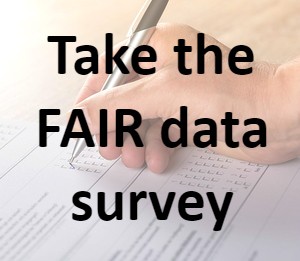 |
Take the FAIR Data Survey (and win book tokens!)
ANDS, Nectar and RDS have launched a short survey on the FAIR data principles. We want to find out what people know about it, and how we can support the research data community to make their data more FAIR (Findable, Accessible, Interoperable, Reusable). Please take five minutes to fill out the survey, and also pass it on to colleagues. Everybody who fills in the survey with a valid email address before 17 November 2017 will be in the draw for one of five $50 book tokens. Take the survey at http://www.ands.org.au/working-with-data/fairdata.
|
 |
EMBL-ABR All Hands Meeting, 28-Nov
This year’s EMBL Australia Bioinformatics Resource (EMBL-ABR) All-Hands meeting on Tuesday 28 November is being hosted by the University of New South Wales. Modelled on similar network meetings held by ELIXIR EU, this day gives time for bioinformaticians and life scientists to assess the research environment, review the past year’s activities and make priorities for 2018. Dr Nicolas Blomberg, Director, ELIXIR EU, will join the meeting in the afternoon. All welcome. Full details at https://www.embl-abr.org.au/all-hands-2017/. |
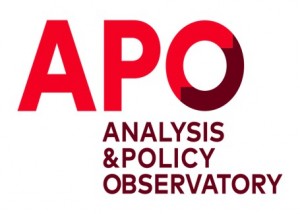 |
Evidence, Impact and Access to Knowledge for Policy and Practice: 28-Nov
APO, the Analysis and Policy Observatory, will host its inaugural Forum in Melbourne on 28 November, for policy makers, researchers, think tanks, NGOs and industry to address issues facing information access for public policy and practice. Topics include: evidence, impact and the policy process; data, tools and platforms for access and analysis of policy issues; challenges of information access; improving the system for better public policy and knowledge access. Speakers include Nick Gruen, Jo Barraket, Julian Thomas, Jane Farmer, Ginny Barbour, and Matt Ryan. Details at http://apo.org.au/node/113626. Register: https://apo-forum-2017.eventbrite.com/. |
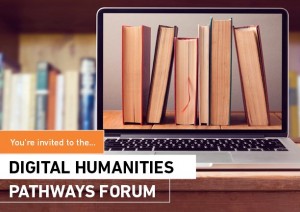 |
Hobart Digital Humanities Pathways Forum 1-Dec
To be held Friday, 1 December at the Menzies Institute for Medical Research, the Hobart Digital Humanities Pathways Forum will have humanities, arts and social science (HASS) researchers and cultural collecting sector (galleries, libraries, archives and museums) professionals discussing the links between research, data, and national infrastructure. This forum is an opportunity for scholars and collecting professionals to learn about contemporary data and technology intensive research and collection practices. Please register to attend here http://bit.ly/HobDHP17, and forward this invite to any colleagues or students who you think may benefit. |
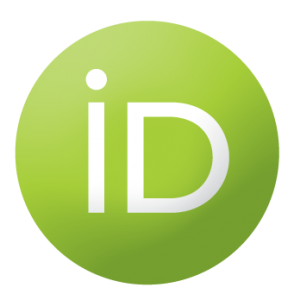 |
New ORCID Outreach Resources
A new suite of outreach resources has been developed and released for ORCID members. This includes a communication toolkit with collateral, written content, eposters and videos. The new resources can be found on the ORCID Outreach resources page (https://members.orcid.org/outreach-resources). AAF has also developed a suite of communication examples (https://aaf.edu.au/media/2017/ORCID/comms_example_generic_20171023.pdf) that can be customised and re-purposed to fit the needs of Australian ORCID consortium members. For access to a range of resources and quick links visit ORCID Resources at https://aaf.edu.au/orcid/resources.html.
|
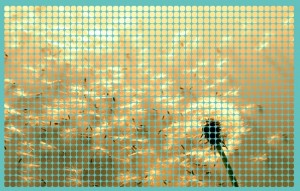 |
Annual Report from Figshare Released
Figshare, an online digital repository for academic research, launched its annual report, The State of Open Data 2017, to coincide with Open Access Week. This report includes survey results and a collection of articles from global industry experts, as well as a foreword from Jean-Claude Burgelman, Head of Unit Open Data Policies and Science Cloud at the European Commission. The Report shows that open data has become more embedded in the research community – 82% of survey respondents are aware of open data sets and more researchers are curating their data for sharing. |
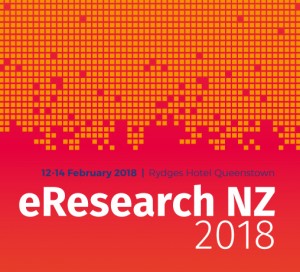 |
eResearch NZ Conference Feb 2018
Join us this summer at the 9th Annual eResearch NZ Conference, to be held in Queenstown (https://www.queenstownnz.co.nz/), the adventure capital of the world, from 12-14 February 2018. The program will be centred around the theme: “The eResearch Outlook: Impact, Sustainability and Excellence” and will provide the opportunity to hear from experts on a variety of topics that appeal to our broad and diverse community. Submissions are open until Monday 27 November 2017. Find out how you can participate by visiting http://eresearch2018.org.nz/. We look forward to seeing you there! |
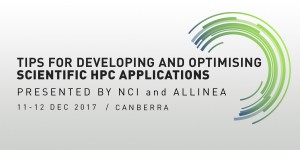 |
NCI Allinea Workshop: Tips for Developing and Optimising Scientific HPC Applications
Missing the vital warning signs of inefficient code behaviour will hinder your performance at any scale. In this Workshop, Allinea experts will provide hands-on advice, customised for NCI users, for parallelisation and development of more robust code. Click here to register: http://bit.ly/NCIAllinea. |
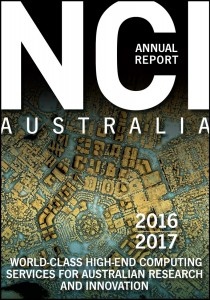 |
NCI’s 2016-17 Annual Report Now Available
The National Computational Infrastructure’s Annual Report for 2016-17 is now available to read here: https://nci.org.au/wp-content/uploads/2014/12/NCI-Report-2017-web-sm-updated.pdf. The Annual Report showcases all the ways that NCI helps enable innovative Australian science, from data-intensive environmental imagery to compute-intensive physical and chemical modelling. To read the Annual Report, visit http://nci.org.au/about-nci/annual-reports/. |
 |
RCC Wins ACS Digital Disruptors Award with MeDiCI
The University of Queensland’s Research Computing Centre won an Australian Computer Society Digital Disruptors Award at a gala event in Sydney on Thursday, 2 November. RCC won the award in the ‘Service transformation for the digital consumer – Government’ category for its Metropolitan Data Caching Infrastructure (MeDiCI) data storage fabric project. Read more at https://rcc.uq.edu.au/article/2017/11/rcc-wins-acs-digital-disruptors-award. |
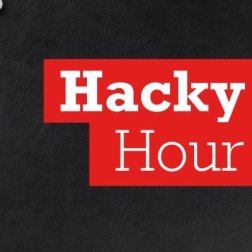 |
Interested in Starting a Hacky Hour? We Have the Book for You!
Hacky hours are a time where researchers can meet with tech teams to work together on data science, digital solutions or upskilling to accelerate their research. They often pair well with Python or R classes (such as Software Carpentry) and are a great place for researchers to ask about HPC and data storage. Amanda Miotto, Griffith University, has collated a Hacky Hour Handbook which includes common audiences, lessons learnt, useful resources and people you should have in your toolbox. Feel free to critique, contribute, copy. See https://github.com/amandamiotto/HackyHourHandbook. |
 |
Amanda Miotto Joins QCIF as an eResearch Analyst for Griffith
Amanda Miotto has joined the QCIF team as a Griffith University-based eResearch Analyst. Amanda has worked at Griffith as an eResearch Support Specialist for the past nine years. She co-founded Griffith’s weekly Hacky Hour and has collaborated with researchers on other initiatives such as the Research Bazaar and Software Carpentry workshops. Amanda will continue to work in these areas. QCIF is thrilled to have Amanda join the team. Read more at |
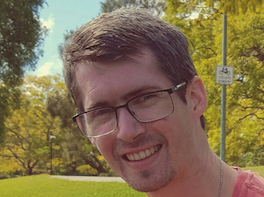 |
Hacky Hour Starts at QUT
QUT now has a weekly Hacky Hour to help its research staff and students with research-related IT problems. QUT’s Hacky Hour will occur most Tuesdays, 2pm-3pm, on the Gardens Point campus. Hacky Hour is free, informal and any QUT research staff or research students are welcome to drop in for advice. QCIF’s QUT-based eResearch Analysts, David Warne (pictured) and Jason D’Netto of the university’s HPC and Advanced Research Computing support group, will serve as the regular IT experts at QUT’s Hacky Hour. Hacky Hours are also at UQ, JCU and Griffith University. See |
 |
Sydney University Rolls Out Informatics Hub
Sydney Informatics Hub provides a free repository service for code development and management. All staff and students will have free access to GitHub Enterprise, a code development and management system that allows collaborators to work together to develop, test and distribute code, making University-wide collaboration much simpler. The platform is operated by Sydney Informatics Hub and is part of its 2016-20 Strategic Plan investment in Core Research Facilities. It will offer researchers the best tools to manage their code, track issues and perform continuous integration in order to develop high quality software. See https://informatics.sydney.edu.au/news/githubenterprise/. |
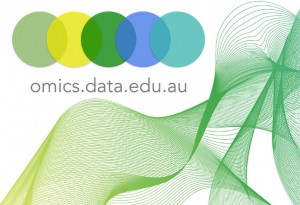 |
RDS Omics Project Complete
After more than 2 years of work, the RDS Omics project has successfully completed over 90 milestones and closed the project at the start of November 2017. Teams from VicNode, QCIF, Intersect, and Melbourne Bioinformatics have been working together since August 2015 on pre-project work before the official RDS Omics project initiation in February 2016. The project has developed an end-to-end bioinformatics-on-the-cloud platform, combining independent components in a flexible and loosely coupled framework. Read more at https://www.rds.edu.au/single-post/2017/11/01/RDS-OMICS-project-update. |
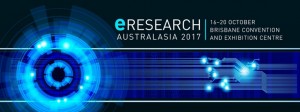 |
eResearch-Australasia 2017 Conference Proceedings
The conference attracted over 430 attendees and the organisers would like to thank all delegates, presenters, sponsors and exhibitors for their participation in the conference. Selected presentation slides from the conference are now available via the website at https://conference.eresearch.edu.au/2017-program/. If you presented at the conference and would like your slides added to the website, please email nikia@conferencedesign.com.au. Photos from eResearch Australasia 2017 are now available via the conference website (https://conference.eresearch.edu.au/) or directly at https://www.flickr.com/photos/100739735@N06/sets/72157661601016108/with/37719836996/ |
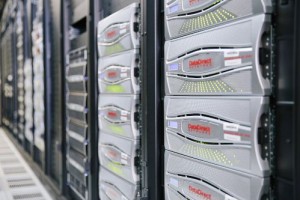 |
New HPC for QLD research: Goodbye Euramoo, Hello Awoonga
Work has completed on transforming high performance computer Euramoo into a new, easier-to-use supercomputer, called Awoonga, for Queensland researchers. The UQ Research Computing Centre and QCIF project has built Awoonga to be compatible with existing research HPCs FlashLite and Tinaroo, to enable researchers to work seamlessly across the clusters. Like its predecessor Euramoo, Awoonga is designed to support high-throughput workloads. Read more at https://www.qcif.edu.au/index.php/news/362-new-hpc-for-qld-research-goodbye-euramoo-hello-awoonga. |
 |
QCIF Releases New ReDBox Research Activity Portal (RAP)
A free online resource allowing data managers and institutions to quickly and easily register a research activity and generate a Research Activity ID (RAiD) is now available. The Research Activity Portal (RAP) produces a RAiD, a persistent identifier used to connect researchers, data, infrastructure and services to research projects. RAP also provides export functions for institutional reporting and customised forms to support an institution’s own data management requirements. RAP is free for any institution to access. Read more at |
Contributions
This newsletter is based on contributions provided by members of the eResearch community, and draws on news articles and newsletters published across the sector. The Newsletter is published around the 16th of each month. Please send any contributions (max. 150 words, plus a link and image) or pointers to any other relevant articles or newsletters to editor@aero.edu.au
Archives of these Newsletters are held at http://aero.edu.au/newsletters/.
Click HERE to add yourself to the eResearch Mailing List.
Thanks,
—AeRO Newsletter Editor

